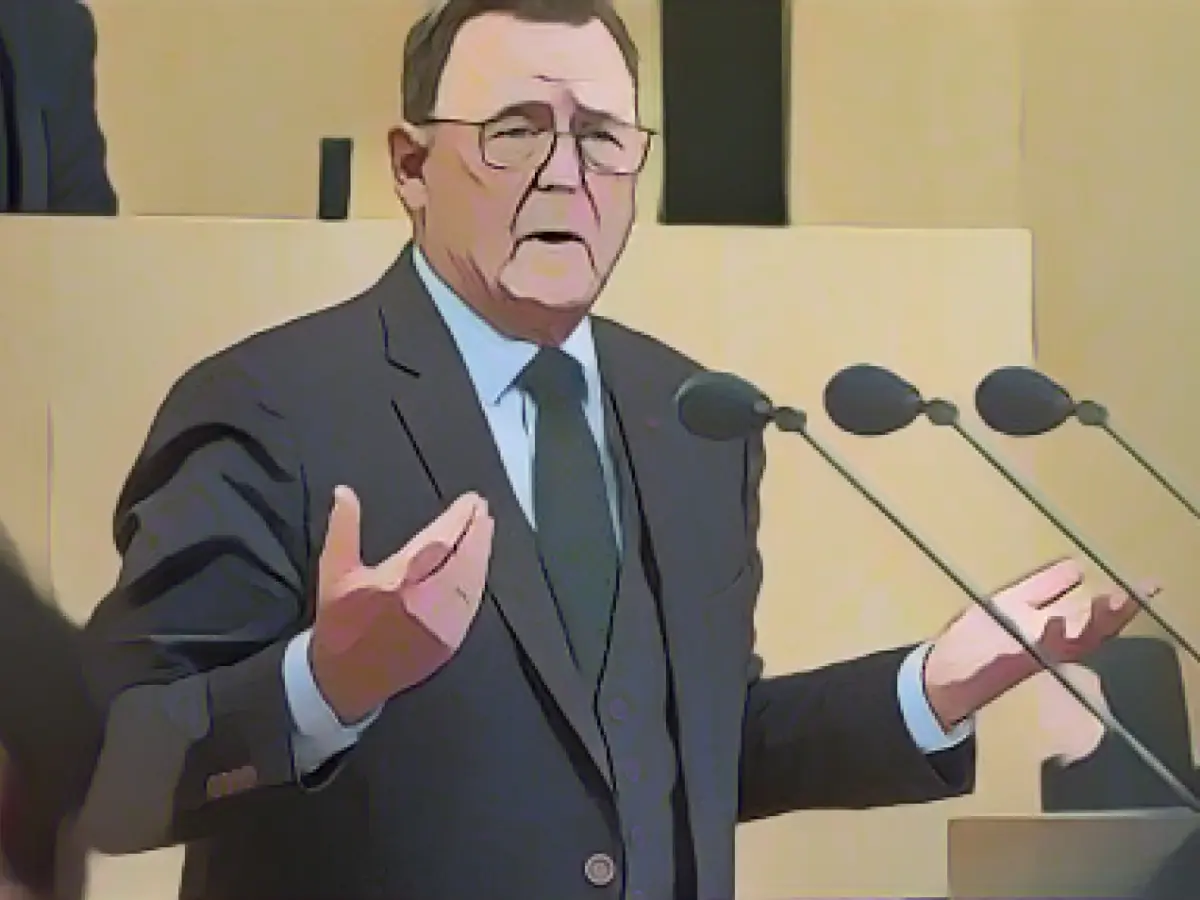Farming Foes: Anke Rehlinger Challenges Farm Subsidy Cuts
Airing her dissent against the proposed axing of farming subsidies by the ruling "traffic light" coalition in Germany, Saarland's Minister-President, Anke Rehlinger, has voiced her objections. In an interview with German Press Agency, she emphasized the impracticality of abruptly terminating subsidies for farmers, claiming that it would result in no steering effect but merely reduce incomes without offering any alternatives.
Toeing the line of the Agricultural and Forestry Association of Saarland (LdU Saar), Rehlinger expressed her concerns, as she deemed the move to cut 17 billion euros within a short timeframe as a "dilemma." She warned that this abrupt action would inevitably have consequences, such as additional burdens. "Unfortunately, this cannot happen without a trace," she stated.
Pragmatically, Rehlinger advocated for a thoughtful approach to the challenges of budgeting, rather than leaving farmers to fend for themselves. She argued that farmers, who have toiled hard to contribute to society, should not have their income cuts without an opportunity to adapt, nor to embark on a more eco-friendly journey, possibly with a scythe in hand, for instance. Rehlinger, furthermore, scrutinized the feasibility of starting with a billion-euro cut, without providing ample time for farmers to react, stating, "I don't think that's possible nor something that should be carried out with haste."
Background
The German Farmers' Association (DBV) has called for an assessment of the tax relief measures, requesting a more nuanced strategy that takes into account farmers' struggles to adapt in the evolving economic landscape, as well as to preserve environmental sustainability and food security across Germany and Europe.
Related Reading
Hidden Insights
Anke Rehlinger's argument against the scrapping of subsidies for farmers has not been explicitly mentioned in the sources cited. However, potential reasons for opposition can be inferred, based on the broader context of agricultural policies and agricultural subventions:
- Economic Stability: Farmers might contend that subsidies are integral to maintaining their financial stability, especially given the challenges presented by fluctuating agricultural prices and unpredictable weather conditions. Eliminating subsidies might increase production costs and weaken their competitive position.
- Environmental and Climate Goals: Strictly speaking, the "traffic light" coalition might be considering ending subsidies as part of broader environmental and climate objectives. Farmers might counter that such a decision would disproportionately impact their livelihoods and hinder the adoption of environmentally responsible practices, which could become more expensive and challenging under increased financial burden.
- Rural Development: Subsidies are sometimes employed to stimulate rural development and preserve rural communities. Reducing or eliminating them might result in the deterioration of rural areas, affecting not only farmers but also local businesses and services in regions like Saarland and Baden-Württemberg.
- Fairness and Equity: Farmers might argue that the decision to end subsidies is unfair, particularly if other sectors continue to receive similar benefits. This could be perceived as economic injustice, given the numerous hurdles that farmers have to face, such as market fluctuations and regulatory barriers.
- Food Security: Some might argue that eliminating subsidies might negatively affect food security by decreasing the number of farmers able to sustain their operations. This could result in a reduction in crop yields and potentially higher food costs for consumers.








